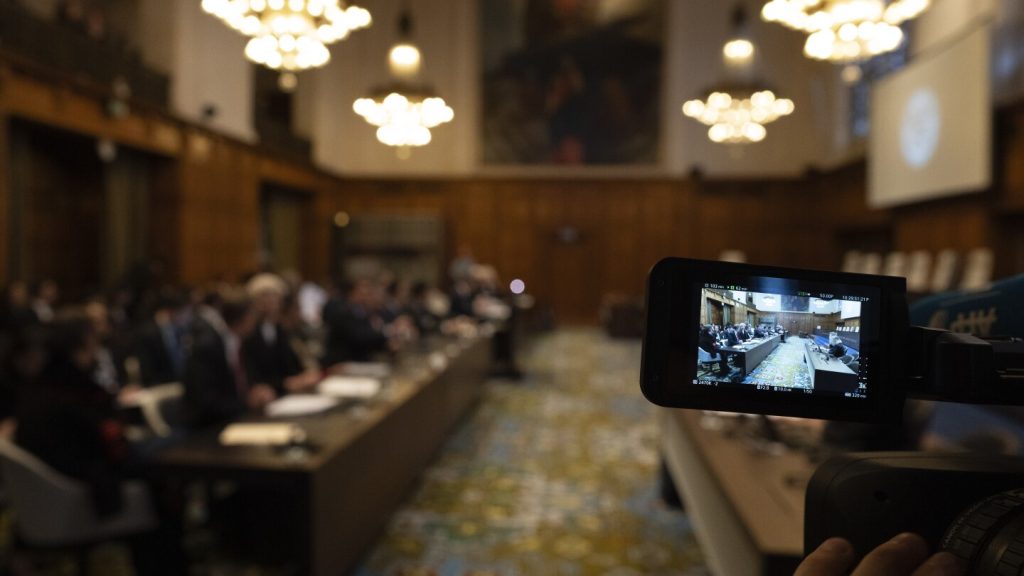Lawyers for Azerbaijan argued in front of the United Nations court in The Hague on Monday, urging judges to dismiss a case filed by Armenia regarding the long-standing dispute over the Nagorno-Karabakh region. Armenia filed the case in 2021, accusing Azerbaijan of a “state-sponsored policy of Armenian hatred” that has led to discrimination, mass killings, and other abuses. The legal dispute stems from tensions that escalated into a war in 2020, resulting in over 6,600 fatalities. Nagorno-Karabakh, though located within Azerbaijan, had been under the control of ethnic Armenian forces supported by Armenia since 1994.
Azerbaijan’s deputy Foreign Minister Elnur Mammadov argued that Armenia did not have the right to bring the dispute to the court in The Hague as the two countries had not engaged in serious negotiations beforehand. He claimed that Armenia had initiated the proceedings to wage a public media campaign against Azerbaijan. International law professor Stefan Talmon, representing Azerbaijan, stated that Armenia did not give negotiations a chance and without any genuine attempts, their application to the court should be rejected. Azerbaijan also argued that most of the allegations in Armenia’s case fall outside the scope of the discrimination convention, thus indicating that the court does not have jurisdiction.
Armenia is set to respond to Azerbaijan’s arguments on Tuesday. Azerbaijan has also filed a case against Armenia at the world court, alleging breaches of the same discrimination convention. Objections raised by Armenia to the Azerbaijani case will be addressed later this month. The conflict in 2020 ended with a Russia-brokered ceasefire agreement granting Azerbaijan control over parts of Nagorno-Karabakh and adjacent territories. Azerbaijan launched a military campaign in Nagorno-Karabakh last year, leading to the majority of the region’s residents fleeing. In December, both sides agreed to start negotiations on a peace treaty, but residents in Armenia’s border regions resisted, viewing it as an encroachment by Azerbaijan on areas they claim as their own.
Armenia’s prime minister emphasized the need to quickly define the border with Azerbaijan to prevent further hostilities. The ongoing legal disputes between Armenia and Azerbaijan at the International Court of Justice highlight the complex nature of the conflict over Nagorno-Karabakh. Both sides continue to present their arguments before the court, raising questions of jurisdiction and the validity of the claims made. The repercussions of the 2020 war are still being felt in the region, with efforts to establish peace treaties facing resistance from certain communities. The outcome of these legal cases could have significant implications for the future of the Nagorno-Karabakh conflict and the relationship between Armenia and Azerbaijan.


